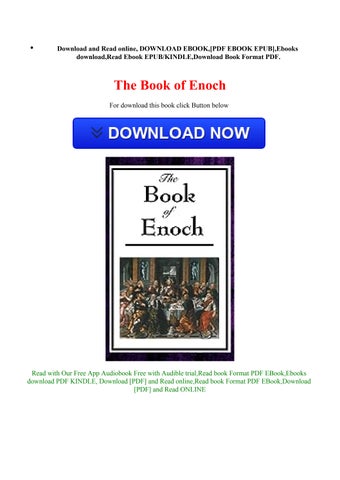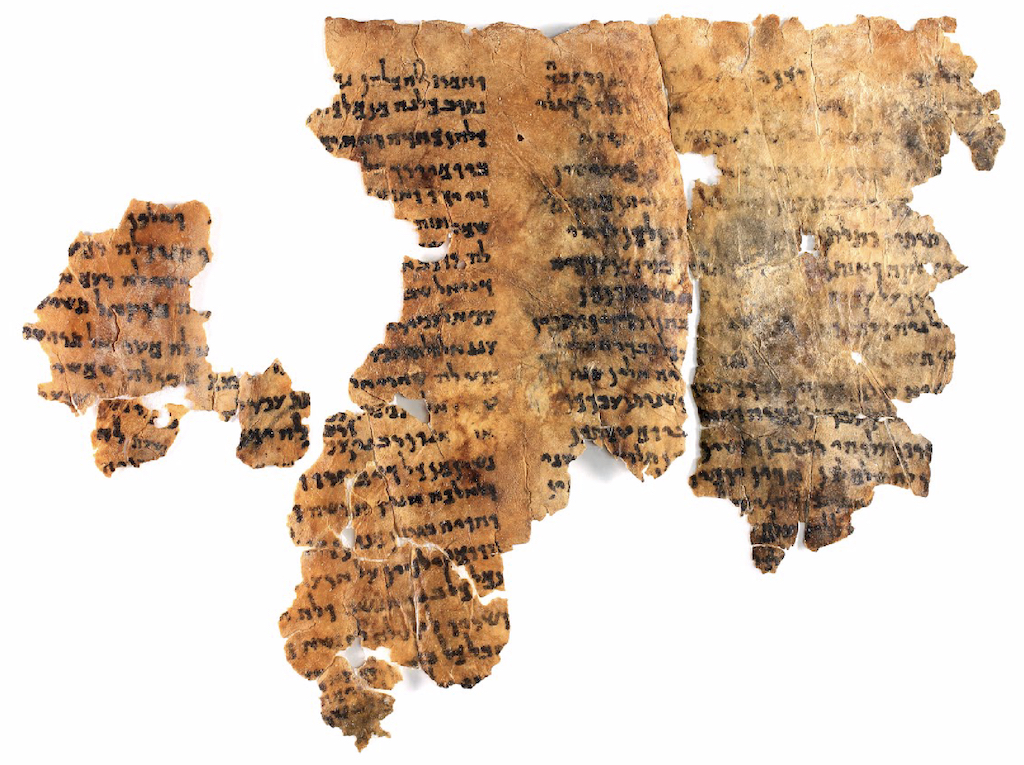Introduction:
The Book of Enoch has captivated the minds and hearts of scholars, theologians, and seekers of hidden knowledge for centuries. Its profound revelations, apocalyptic visions, and celestial mysteries have sparked countless discussions and debates about its authorship, dating, and significance. This article delves into the captivating history of the Book of Enoch, exploring the various theories surrounding its composition and the evidence that sheds light on its origins.
Seemore: Why Stay Away from the Book of Enoch
The Book of Enoch and Its Historical Context:
To understand the significance of the Book of Enoch, it is essential to understand its historical context. The book is attributed to Enoch, a biblical patriarch who lived before the Great Flood. According to the biblical account, Enoch was taken up to heaven by God without experiencing death. This mysterious and legendary figure has been the subject of much speculation and fascination throughout history.
Enoch’s story is also mentioned in the New Testament, specifically in the Epistle of Jude, where he is referred to as the seventh from Adam and a prophet. This reference further adds to the enigma surrounding Enoch and his supposed writings. However, the Book of Enoch as we know it today is not included in the biblical canon. So when was the Book of Enoch written?
Dating the Composition of the Book of Enoch:

The question of when the Book of Enoch was written remains a hotly debated topic among scholars. Some argue that the book was written in the 3rd century BC, while others believe it was composed in the 1st century AD. One theory suggests that the book was originally written in Aramaic or Hebrew, and later translated into Greek and other languages. However, there is no consensus on the exact date of its composition.
The earlier date of the 3rd century BC is based on the fact that several fragments of Enoch’s writings were discovered among the Dead Sea Scrolls, dating back to this time. These fragments are believed to be from the Book of Watchers, which is considered to be one part of the Book of Enoch. It is also worth noting that the Book of Enoch is referenced in the Book of Jubilees, which was written during this time period.
On the other hand, those who argue for a later date of composition point to similarities between the Book of Enoch and other works from the 1st century AD, such as the Gospel of Matthew and the Epistle of Jude. They also believe that certain linguistic and literary features of the book suggest that it was composed in the New Testament era.
Manuscript Evidence and the Origins of the Book of Enoch:

Apart from the Dead Sea Scrolls, there is a lack of early manuscript evidence for the Book of Enoch. The oldest surviving complete manuscripts of the book date back to the 15th century AD and are written in Ethiopic (Ge’ez). However, scholars have found that some passages from the Book of Enoch are quoted in early Christian texts, such as the Epistle of Barnabas and the Apocalypse of Peter. This suggests that the book was known and used by Christians in the early centuries of the Church.
Some scholars have proposed that the Book of Enoch has roots in ancient Jewish traditions and may have been passed down orally before being written down in the 3rd century BC or later. Some also suggest that the book may have been influenced by other apocalyptic literature of the time, such as the Book of Daniel and the Book of Revelation.
Literary Analysis and the Development of the Book of Enoch:
One of the most intriguing aspects of the Book of Enoch is its complex literary structure. The book is not a single cohesive text but rather a collection of distinct writings that have been compiled together. The main sections of the book are the Book of Watchers, the Book of Parables, and the Book of Astronomy.
Some scholars believe that these sections were originally separate works that were later combined into one book. This is supported by the fact that each section has its unique style and themes. For example, the Book of Watchers focuses on the fall of the angels and the Nephilim, while the Book of Parables deals with the coming judgment and the establishment of God’s kingdom. The different styles and themes suggest that the book may have evolved over time, with various authors and editors adding to it.
The Similarities and Differences between the Greek and Ethiopic Versions of the Book of Enoch:
As mentioned earlier, the oldest complete manuscripts of the Book of Enoch are written in Ethiopic. However, fragments of the book have also been found in Greek, Aramaic, Latin, and other languages. The differences between these versions have sparked debates about the original language and the authenticity of certain passages.
The Ethiopic version of the Book of Enoch contains five sections, including the Book of Giants, which is not found in the Greek version. Some scholars argue that this section was added later and is not an original part of the book. Other differences include variations in titles, order of chapters, and even variations in some passages’ content. These differences have led some to question the accuracy and completeness of the Ethiopic version.
Despite these discrepancies, there are also striking similarities between the Greek and Ethiopic versions, particularly in the Book of Watchers and the Book of Parables. This suggests that the two versions may have a common source or that the Greek version may have been translated from the Ethiopic.
The Reception and Influence of the Book of Enoch in Early Christianity:
As mentioned earlier, the Book of Enoch was known and used by early Christians. The book’s apocalyptic and messianic themes resonated with early Christians, who were living in a time of great political and social upheaval. Some early Christian writers, such as Tertullian and Origen, referenced the Book of Enoch in their works.
The book’s influence can also be seen in some early Christian texts, such as the Apocalypse of Peter, which shares many similarities with the Book of Parables. However, as the Church began to establish its canon, the Book of Enoch was not included, and its use and popularity declined in mainstream Christianity. It was still known and used by some groups, such as the Ethiopian Orthodox Church, but it was largely forgotten in Western Christianity.
The Book of Enoch and the Dead Sea Scrolls:
One of the most significant discoveries that shed light on the origins of the Book of Enoch is the Dead Sea Scrolls. These ancient manuscripts were found in the 1940s and include fragments of the Book of Watchers, which is believed to be part of the Book of Enoch. These fragments date back to the 3rd century BC, making them the oldest surviving copies of the book.
The fragments found among the Dead Sea Scrolls are written in Aramaic, further supporting the theory that the original language of the book was Aramaic or Hebrew, and later translated into other languages. These fragments have provided valuable insight into the development and transmission of the Book of Enoch.
The Book of Enoch: Parables, Visions, and Journeys of a Legendary Patriarch:
The sections of the Book of Enoch each offer unique insights and teachings, but perhaps none more so than the Book of Parables. This section contains vivid descriptions of the end of days, the judgment of humanity, and the establishment of God’s kingdom. It also introduces the figure of the Son of Man, who plays a crucial role in the book’s apocalyptic themes.
The Book of Parables is filled with rich symbolism and imagery that has sparked much debate and interpretation. Some scholars suggest that it is a commentary on contemporary political and social issues, while others see it as a reflection of Jewish and Christian theology. Whatever the interpretation may be, one thing is clear – the Book of Parables is a profound and thought-provoking text that continues to captivate readers to this day.
The Book of Enoch: The Watchers, the Nephilim, and the Origins of Evil:
One of the most controversial aspects of the Book of Enoch is its depiction of the fallen angels, known as the Watchers, and their offspring, the Nephilim. These beings are described as corrupting humanity and causing great evil on earth. Some scholars have suggested that this story may have been influenced by ancient Near Eastern myths and legends. Others see it as a reflection of the author’s understanding of the origins of evil and the fallen nature of humanity.
The story of the Watchers and the Nephilim has also sparked discussions on the origin of demons and other supernatural beings. Some believe that these stories reflect ancient beliefs about demonic entities and their connection to human corruption and suffering. This aspect of the Book of Enoch continues to fascinate and intrigue readers as they try to unravel its mysteries.
Exploring the Apocalyptic and Messianic Themes in the Book of Enoch:
The apocalyptic genre is prevalent in ancient literature, and the Book of Enoch is no exception. The book is filled with vivid and striking visions of the end times, the coming judgment, and the establishment of God’s kingdom. These themes reflect the author’s understanding of the world and their hopes for the future. They also provide valuable insights into ancient Jewish and Christian beliefs about the end times.
The messianic themes in the Book of Enoch are also significant. The figure of the Son of Man is mentioned throughout the book, and some scholars see this figure as a precursor to Jesus Christ in Christian theology. The Book of Parables also contains a prophecy about the coming of a righteous king who will judge the wicked and establish God’s kingdom on earth. These messianic themes have had a profound influence on later Christian beliefs and teachings.
Conclusion:
In conclusion, the Book of Enoch is an enigmatic and influential text that continues to intrigue readers to this day. Its authorship, dating, and significance are still debated by scholars, and its complex literary structure adds to its mystery. However, one thing is clear – the Book of Enoch offers a unique and valuable perspective on ancient history, apocalyptic visions, and celestial mysteries. Its impact on early Christianity and its enduring influence on literature and theology make it a timeless treasure worth exploring.
